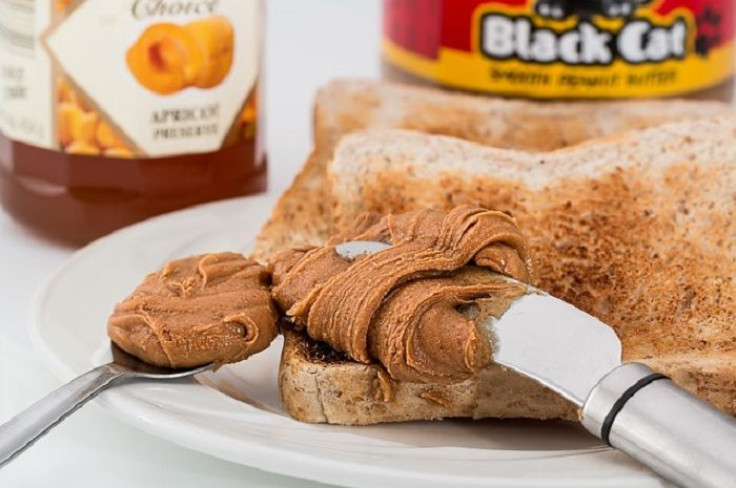Peanut Butter May Prevent Childhood Obesity; Snacks With Peanuts Positively Affect BMI

Childhood obesity is one of the most pressing issues in the United States. Despite recent declines in the overall rate, the Centers for Disease Control and Prevention reports the condition still affects about 12.7 million children and adolescents between the ages 2 and 19. Could the still-high rate be traced back to unhealthy snacks offered in schools? That’s what new research published in the Journal of Applied Research on Children seems to suggest.
For the study, researchers enrolled 257 Latino students at greater risk for obesity in an intensive nutrition intervention program for 12 weeks. The program included nutrition education, physical activity, and the choice between healthy and unhealthy snacks when boarding the bus to go home. Half of the students received a snack of peanuts or peanut butter three to four times a week, while the rest received the snack fewer than once a week. Peanuts were chosen because unlike chips and sugar-sweetened beverages, nuts are packed with filling protein.
After the 12-week program, students were asked to maintain their respective snack habit for 12 more weeks. And after six months, researchers found those who snacked on peanuts or peanut butter experienced a significantly greater decrease in body mass index (BMI) compared to those who did not receive the regular peanut snack.
Based on these findings, researchers conclude peanuts are a healthier alternative for children who frequently snack on “energy dense, unhealthy snacks.”
"Schools are doing a great job of teaching kids, getting them workforce ready, and a whole bunch of other things," lead study author Craig Johnston, assistant professor at the University of Houston’s department of health and human performance, said in a statement. "We've just got to make sure that our kids are going to live long, happy lives with that kind of education."
Snacking is reportedly more common during adolescent years. One study found that on average, teens consume between two and three snacks a day — more than a quarter of their daily energy intake. And a serious snack habit could lead to unhealthy weight gain.
"What we found is that kids get home from school around 4 p.m. There's less supervision by parents and less structure," Johnston said. "Kids are sitting down at the TV and eating, eating, eating because they really didn't eat at school."
This isn't the first study to link peanuts to better health. Prior research has shown peanuts can reduce heart disease risk and lower death risk from major causes. For girls, one study found those who regularly ate peanut butter or nuts were 39 percent less likely than their peers to develop benign breast disease by age 30.
Source: Moreno J, Mohammed A, Moore C, Johnston C. Benefits of a Snacking Intervention as Part of a School-Based Obesity Intervention for Mexican American Children. Journal of Applied Research on Children. 2016.



























